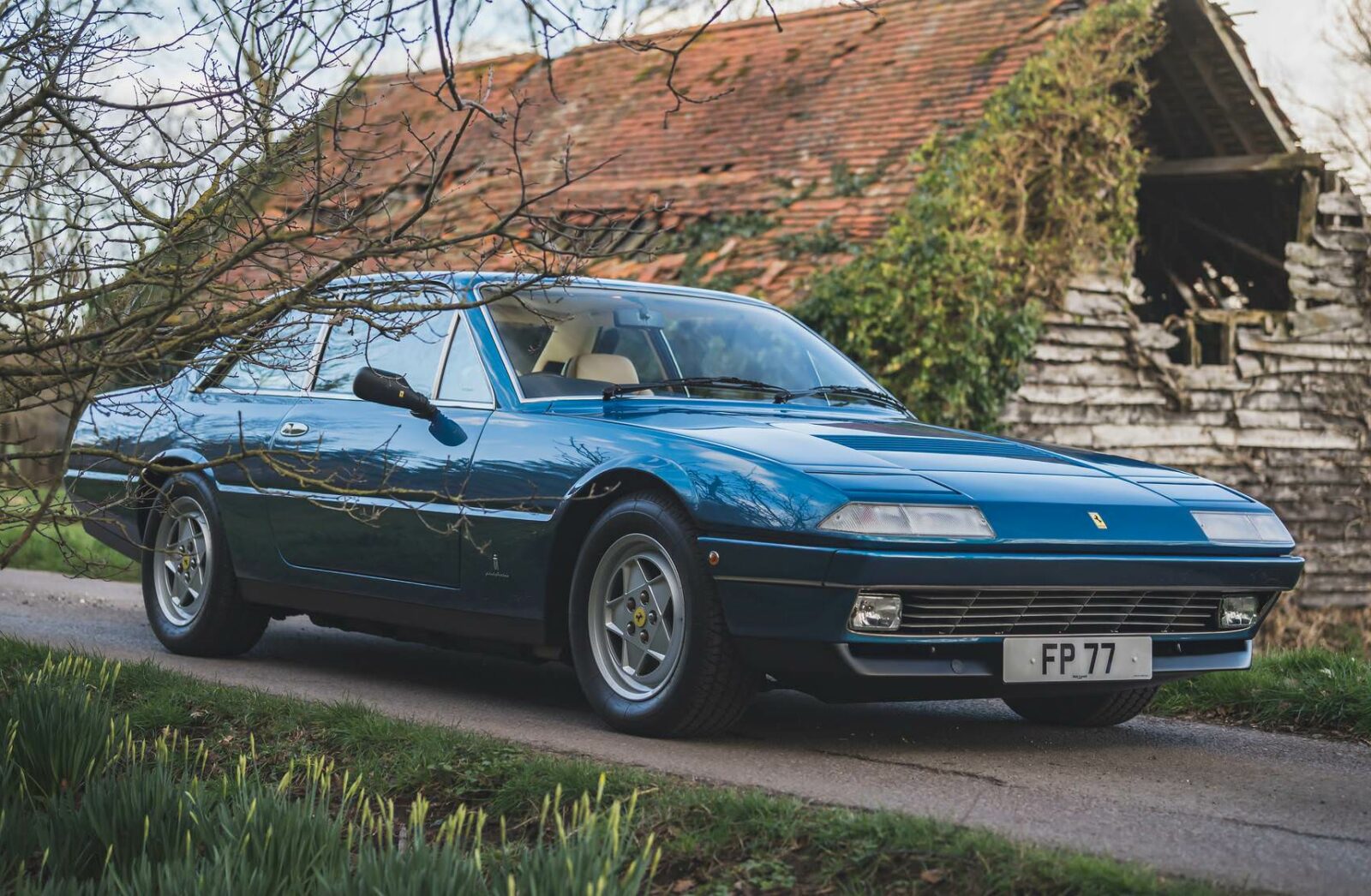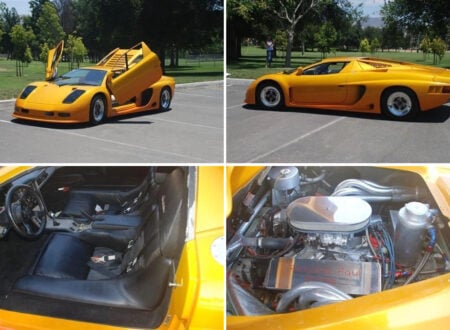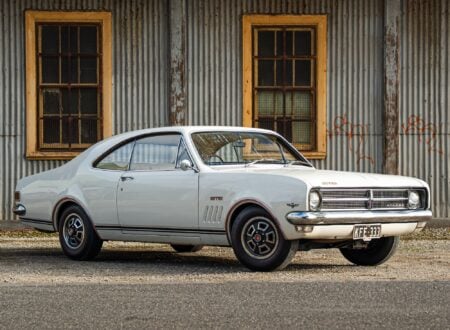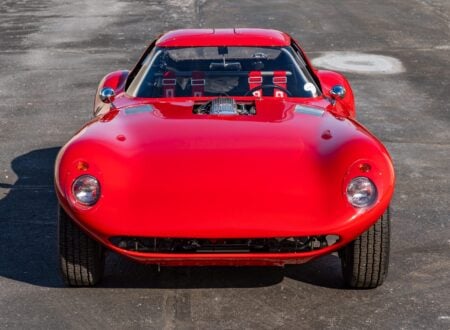The Ferrari 412i was a notable car for a number of reasons. It was the final production Ferrari fitted with the Colombo V12 engine, it was the first Ferrari series fitted with an optional automatic transmission, and it would cap the end of production for the longest running model series in Ferrari history.
Interestingly, the Ferrari 412i was designed by Leonardo Fioravanti at Pininfarina, the same man who had styled the Ferrari Daytona, the Ferrari Dino, the Ferrari 512BB, the Ferrari 288 GTO, and the Ferrari Testarossa – so it stands in remarkably good company.
Fast Facts – The Ferrari 412i
- The Ferrari 412i debuted in 1985 as the Italian automaker’s V12 grand tourer. It was powered by the Colombo V12 in 4,942cc form and it could be ordered with either a 5-speed manual or a 3-speed automatic transmission.
- The 412i was the successor to the 400i, which had come after the 400, which had come after the first model in the series, the 365 GT4 2+2. The cars all shared a similar body, chassis, and drivetrain, with incremental updates over time to improve them and keep them competitive.
- The first car in the series, the Ferrari 365 GT4 2+2, was the successor to the similarly named Ferrari 365 GT 2+2. It used a lengthened version of the tubular steel chassis from the Ferrari GTC/4, and of course it was powered by the venerable Colombo V12.
- The car you see in this article is a 1990 Ferrari 412i, it’s one of just 82 right-hand drive manual transmission examples ever made, and it has only 8,000 miles on the odometer, along with a full service history.
The Ferrari 412i
The Ferrari 412i, introduced in 1985, was to be the final evolution of the long-running Ferrari 400 series. The series began in 1976 with the debut of the 365 GT4 2+2, which was later succeeded by the 400, the 400i, and the 412i. With the 412i, Ferrari aimed to refine the 400 series further, maintaining its reputation for luxury while incorporating a range of upgrades that slightly changed the look of the car, while increasing safety and day-to-day ease of use.
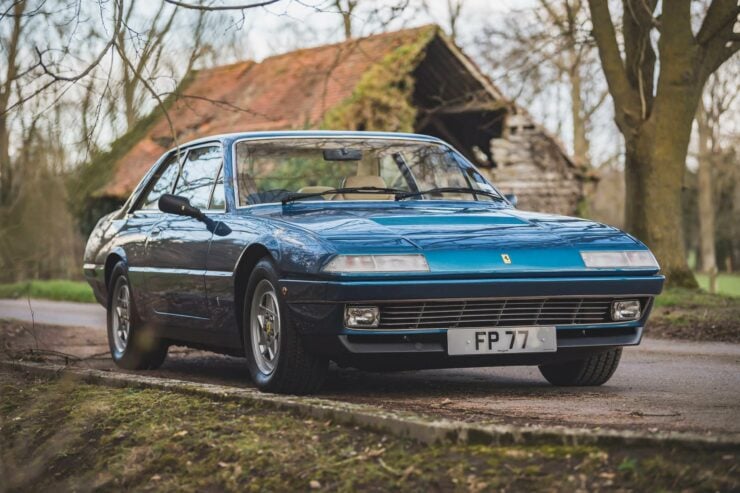

Designed by the legendary Leonardo Fioravanti at Pininfarina, the 412i wasn’t as popular at launch as some of his other designs, like the Daytona, 288 GTO, or Testarossa. The three-box exterior design of the 412i showcases a long, sleek hood, sharp lines, and an understated grille.
The interior of the Ferrari 412i was impressive, featuring rich leather upholstery and a spacious cabin that comfortably accommodates up to four passengers and their luggage. The design and attention to detail of the interior is classic Ferrari, and would be recognizable to many even if all the badging was removed.
The Ferrari 412i is powered by a 4.9 liter Colombo V12 which produces an impressive 340 bhp and 333 lb ft of torque. This engine, paired with a choice of either a 5-speed manual or a 3-speed automatic transmission, delivered the kind of continent-crossing performance you’d expect from a Ferrari grand tourer with a top speed of 155 mph (250 km/h) on the manual-transmission version.
Unlike many of the Ferrari GT cars of the 1960s and earlier, the 412i has four wheel independent suspension consisting of double wishbones, coil springs, sway bars, and hydraulic dampers on all four corners. Disc brakes came as standard on all four wheels, as you’d expect from a performance car from this era, and for the first time for a Ferrari, a Bosch ABS system was used.
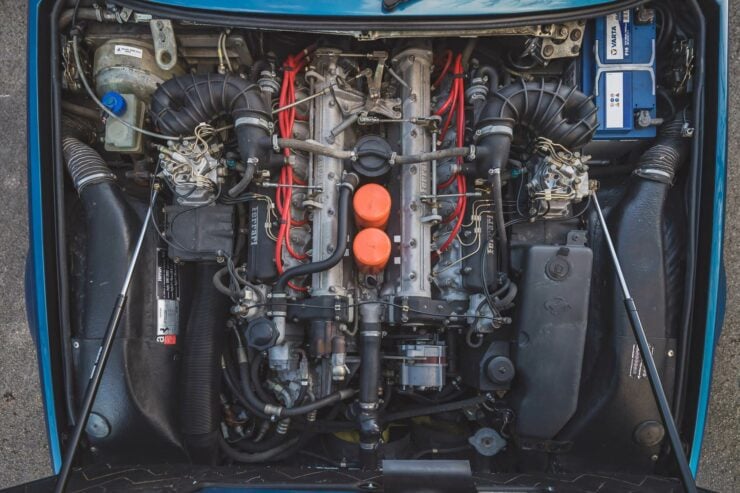

The chassis used in all of the 400 series Ferraris is a modified version of the tubular steel chassis that originated on the Ferrari GTC/4. It was lengthened 200 mm and fitted with a steel body and a fiberglass floor to address a common area for rust.
The 412i has a number of discrete upgrades over the earlier 400i. It had a slightly higher trunk in the rear to accommodate more luggage, as well as body-coloured bumper inserts front and back, new sill panels, clear indicator lenses, and black windscreen and window surrounds to replace the original chrome.
Exterior badges on the 412i now no longer showed which transmission option had been fitted and there was a deeper spoiler fitted up front. Perhaps the most famous Ferrari 412 is the one that was used in Daft Punk’s Electroma, an avant-garde science fiction film that debuted in 2006. It was directed by Daft Punk, and the story centers around two robots on a quest to become human.
The Ferrari 412i, with its production run from 1985 to 1989 and only 576 units were produced, is now considered a classic but only in some circles. For years many collectors turned their noses up at them, however the styling is gaining in popularity over time, and the more affordable prices they tend to sell for makes them particularly attractive.
Above Film: This is “Daft Punk’s Electroma,” an avant-garde science fiction film that features the prominent use of a Ferrari 412i.
The 1990 Ferrari 412i Shown Here
The car you see here is a model year 1990 Ferrari 412i, meaning it was built in 1989 – the final year of production. The upside to this is that it benefits from all of the upgrades applied to the 400 series over its remarkably long
It’s finished in Blu Chiaro Metallic over a Beige leather interior and it rides on correct alloy wheels, and this car is showing just 8,000 miles on the odometer and it has a full service history. This is also one of just 82 right-hand drive manual transmission examples ever made.
This car is now being offered for sale out of Abingdon in the United Kingdom on The Market by Bonhams and you can visit the listing here if you’d like to read more about it or register to bid.
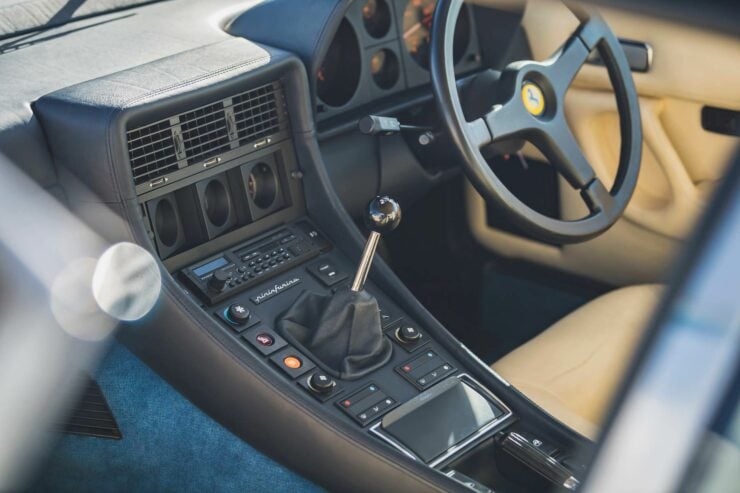
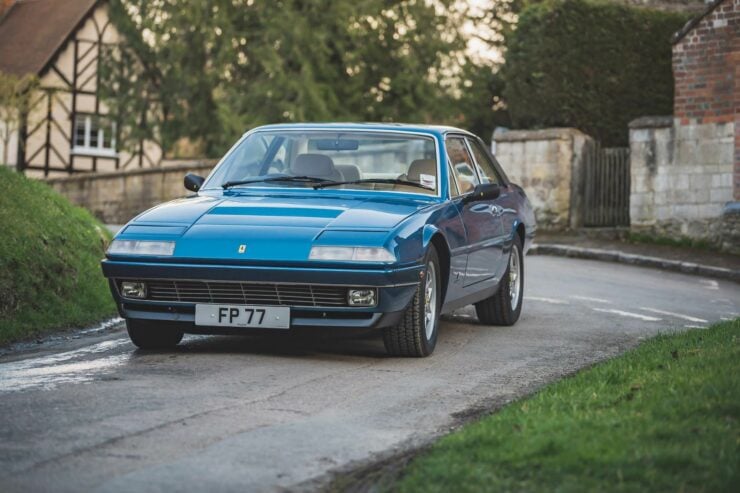
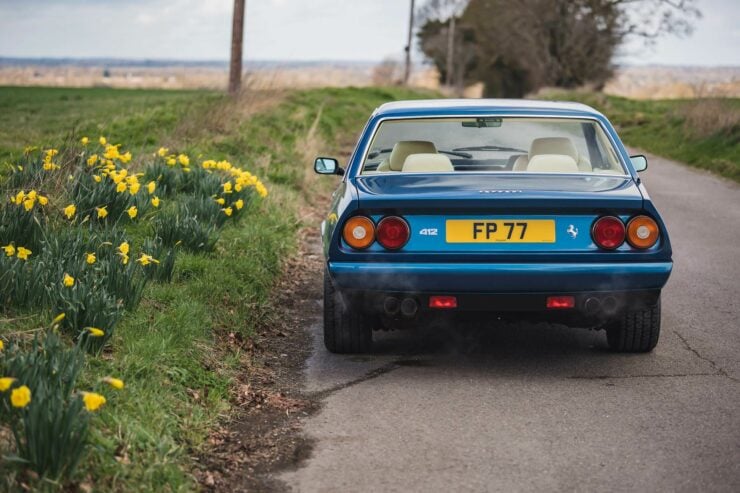
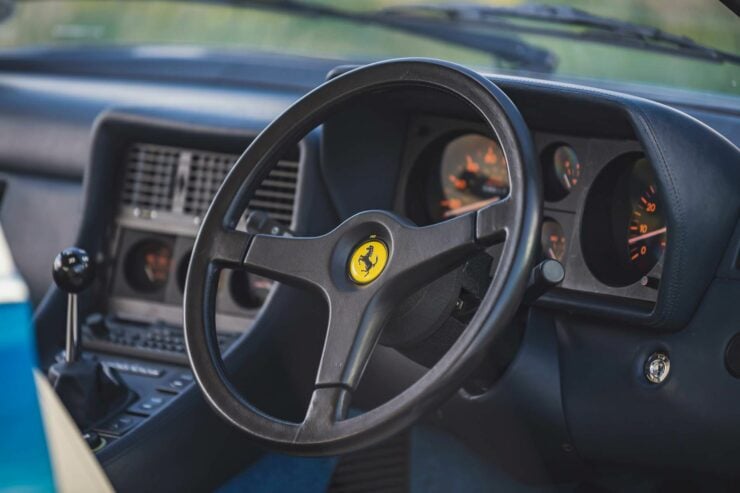
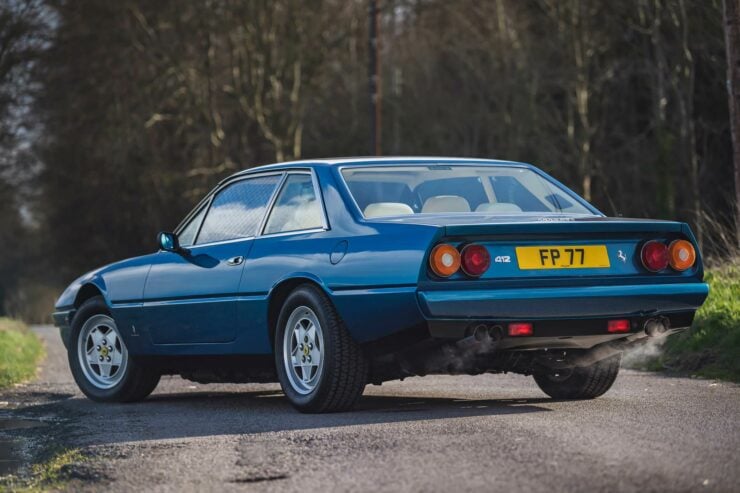
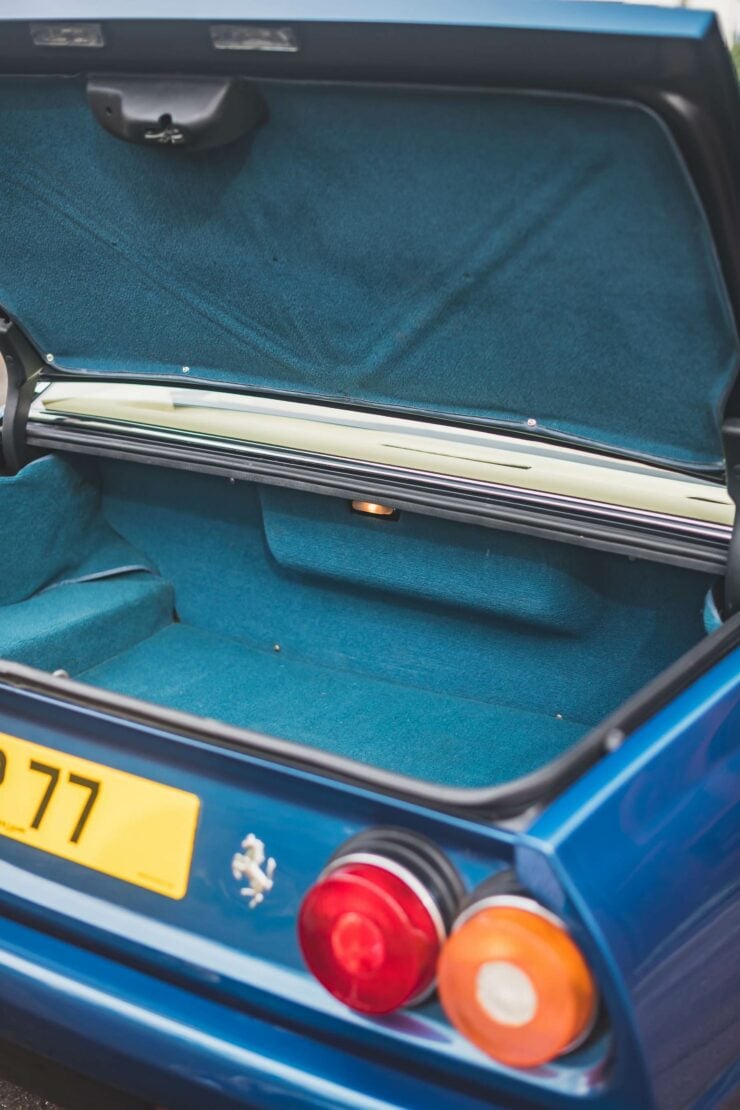
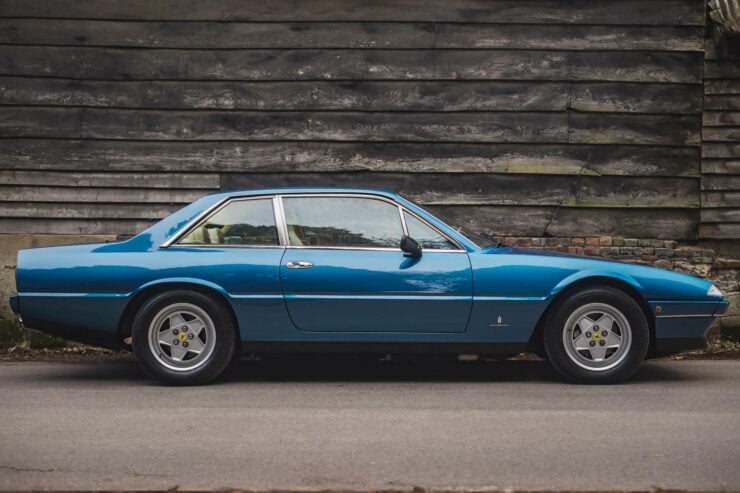
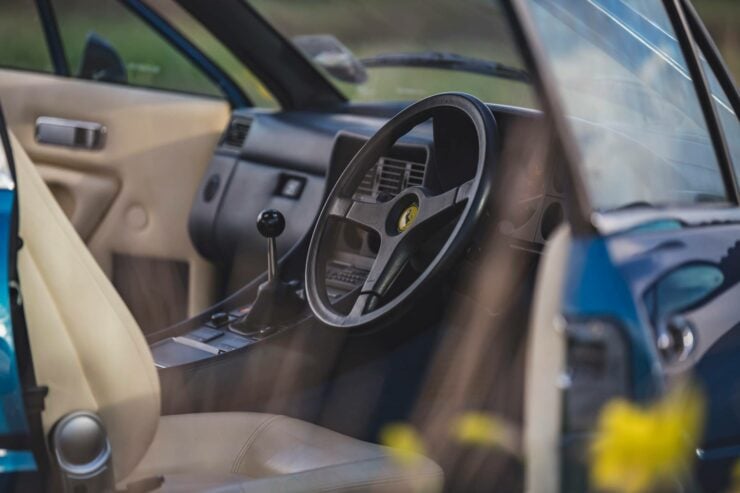
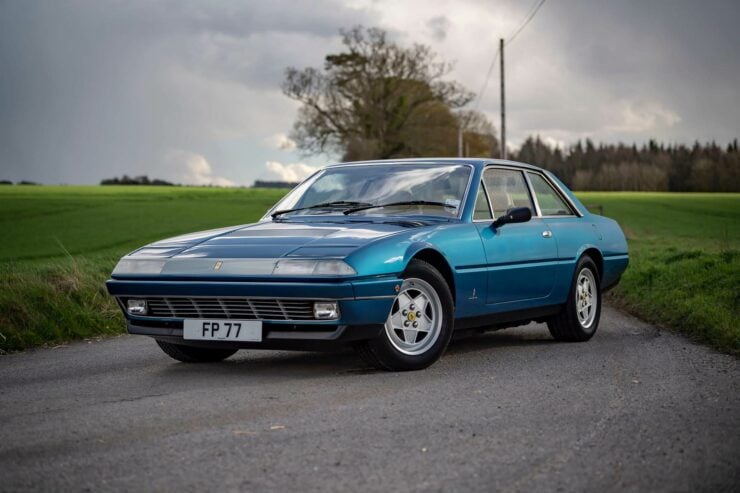
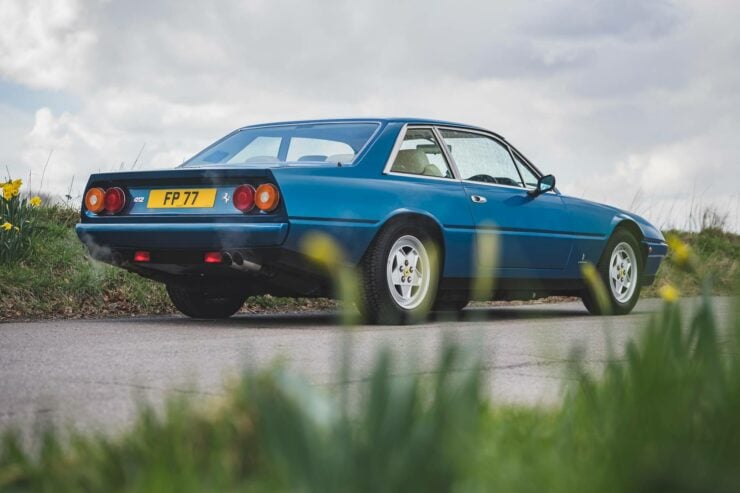
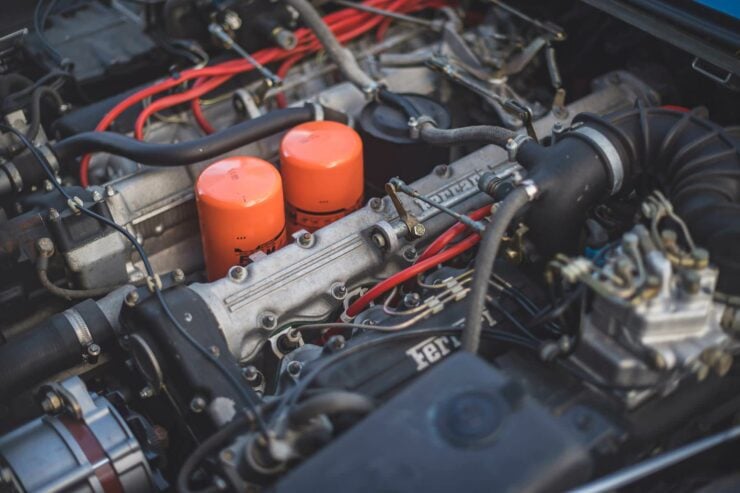
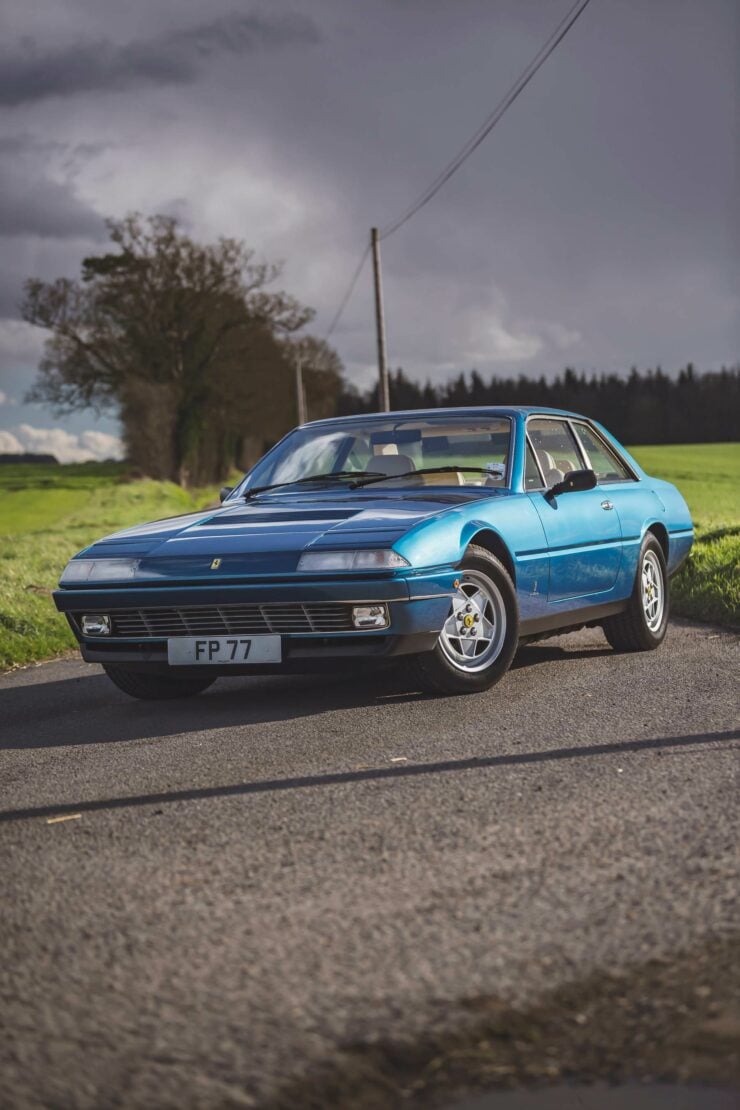
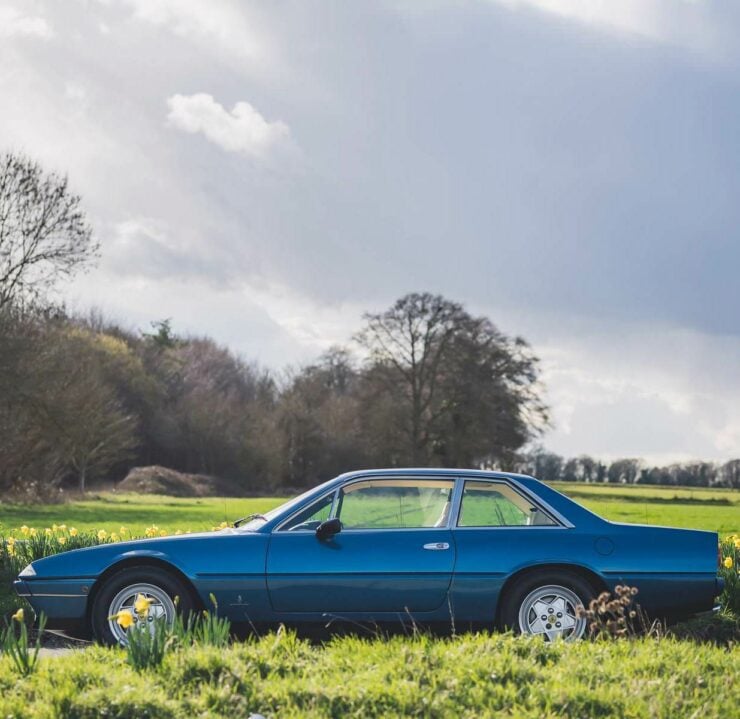
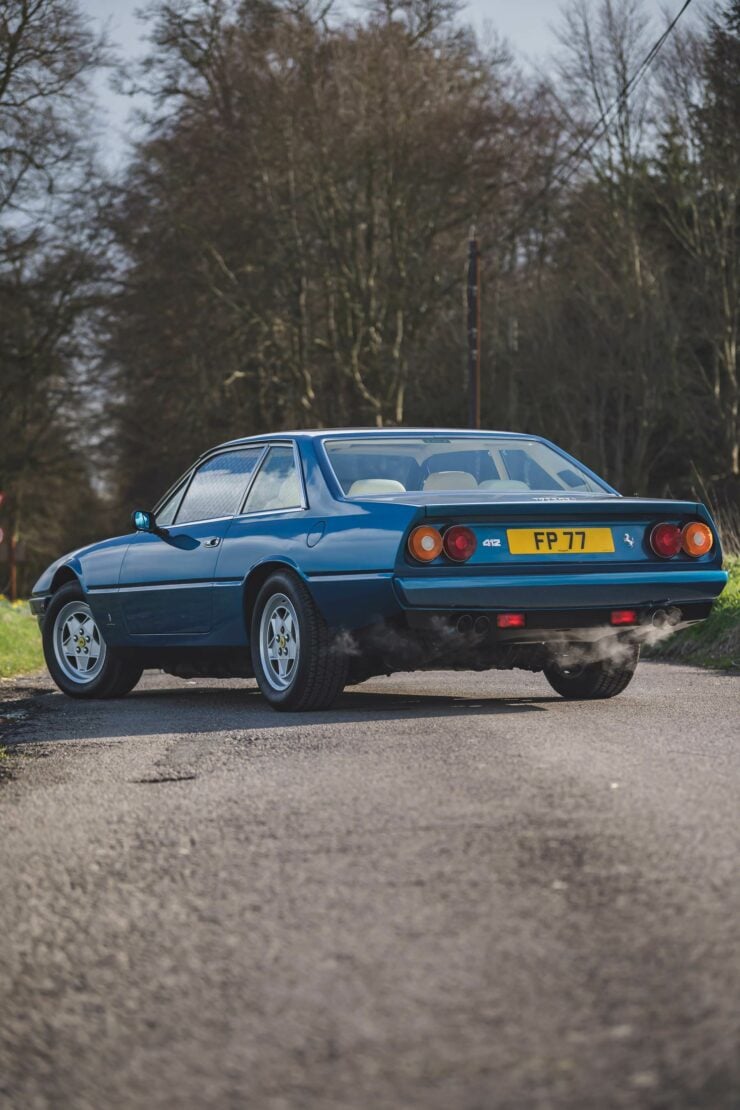
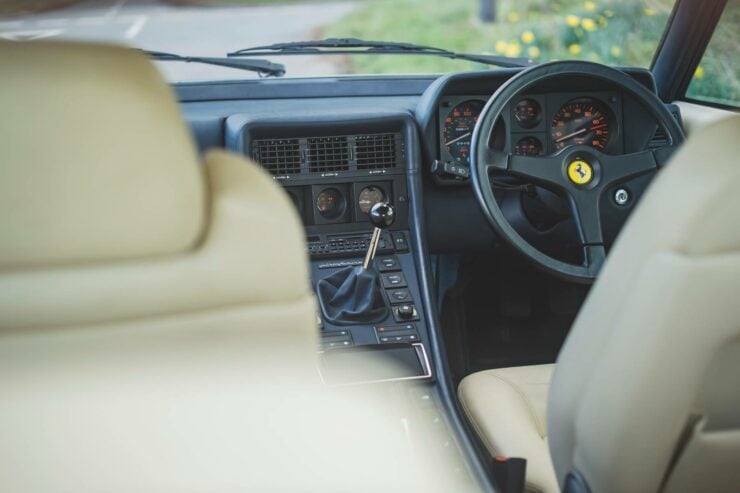
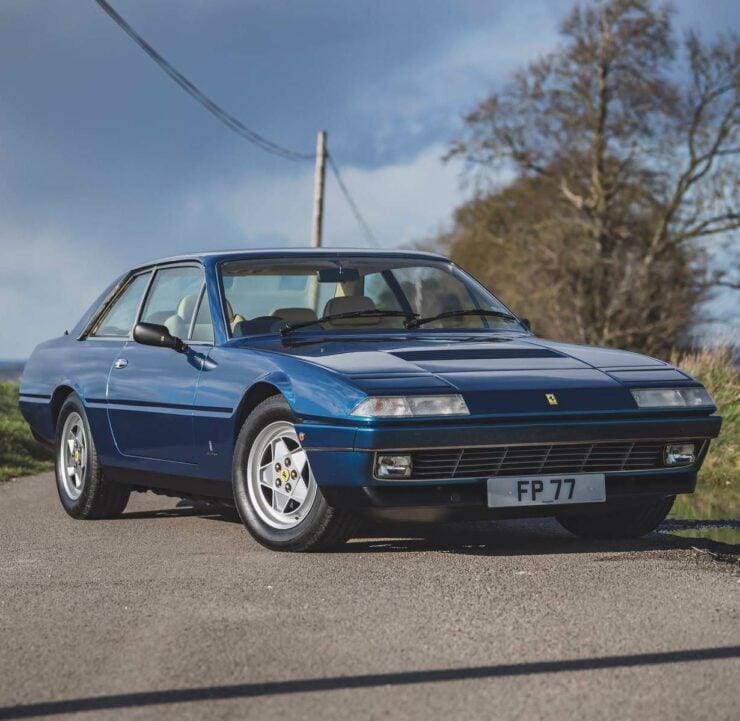
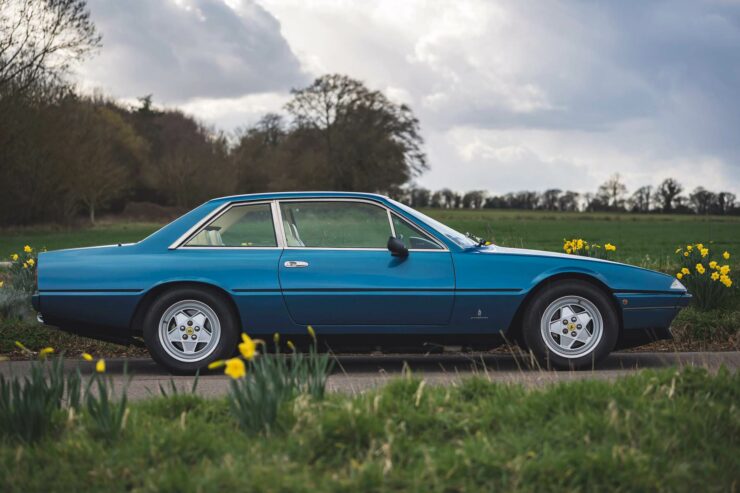
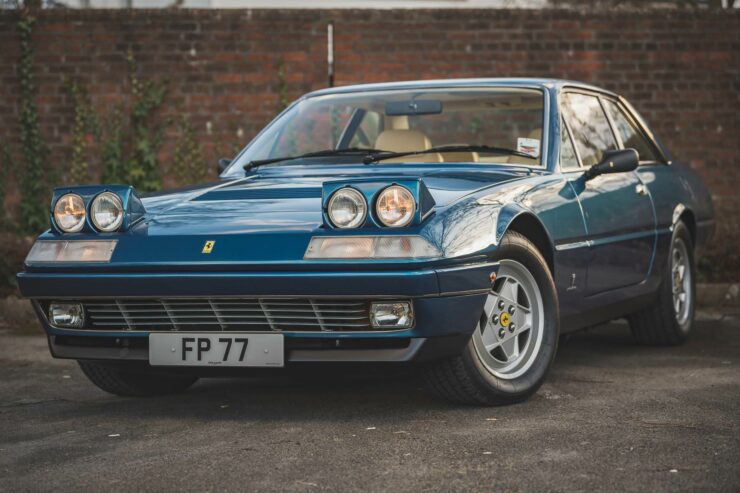
Images courtesy of Bonhams

